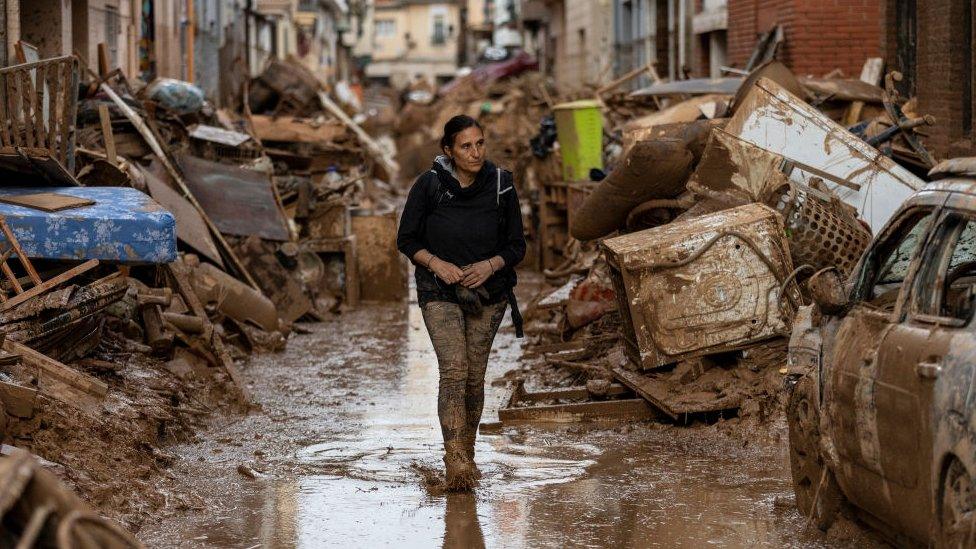Storm Ciarán eases but flood warnings remain
- Published
Watch: Cars were washed into the sea and roofs were blown off
Around 40 flood warnings remain in place across the UK in the aftermath of Storm Ciarán.
Nearly 150,000 homes were left without power after the severe weather caused widespread flooding and damage.
Jersey recorded hurricane-force gusts of more than 100mph (161km/h).
While the worst of the weather is now over, rain and "violent" winds are forecast for some parts of the UK this weekend, though a "risk to life" warning has been downgraded in Wales.
A yellow rain warning , externalexpired for north-eastern Scotland at 17:00 GMT on Friday.
A separate warning for the entire south coast of England will come into effect from 05:00 until the end of the day on Saturday, with 30-40mm of rainfall possible in coastal areas.
No deaths have so far been linked to the storm in the UK, but there have been at least 13 fatalities in mainland Europe.
In Wales, a severe flood warning around the Kiln Park caravan site, external in Tenby, Pembrokeshire, was downgraded at 16:46 to a flood warning, after previously cautioning that there was a "significant risk to life and disruption to the community is expected".
However, there are fears that the next high tide, just after 21:30 on Friday, could raise the near-record level of the River Ritec further, bringing additional disruption. The caravan site has been already been evacuated.
Two separate flood alerts - meaning flooding is possible - are in place in Wales, with stwo more in Scotland, external.
Some 38 English flood warnings, external - meaning flooding is expected - remain in force, largely across the south of the country, with a further 167 flood alerts stretching northwards, up to near Scarborough.
By Friday afternoon, Ciarán was moving away from the UK.
BBC Weather meteorologist Helen Willetts said the remains of the storm, in the North Sea, is now much weaker.
She explained that it would will bring heavy, blustery showers but added that drier, sunnier spells can be expected in between.
Ms Willetts continued: "However, in eastern and north-east Scotland, the rain will be persistent and occasionally heavy. Then overnight and through tomorrow (Saturday), more rain will push across England and Wales, and possibly eastern Northern Ireland as the wind picks up in the south.
"So again, it's the rain that is likely to cause more flooding and disruption as the ground is already saturated from the record breaking rainfall we have already seen in parts this October."
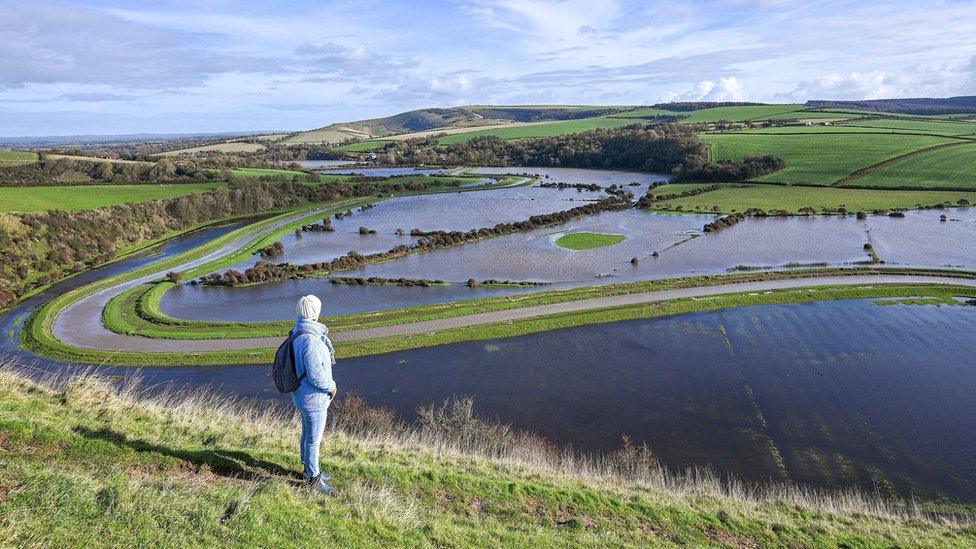
Flooded fields and farmland at Alfriston, East Sussex, after the River Cuckmere burst its banks
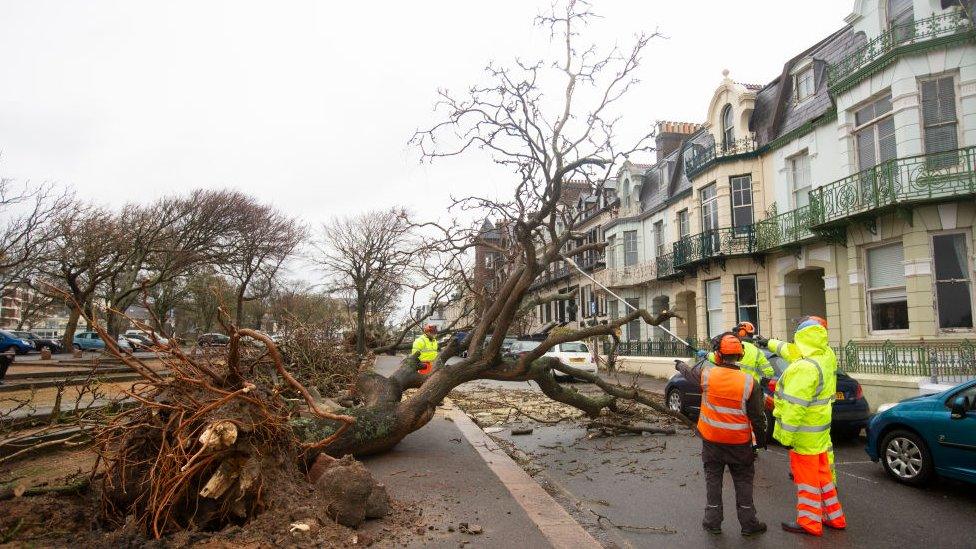
The clean-up has begun in Jersey, where winds reached up to 100mph (161km/h) overnight
Schools in Jersey - which saw some of Thursday's worst weather - remained closed for a second day on Friday and aim to reopen on Monday.
Schools on the neighbouring islands of Guernsey and Alderney reopened on Friday, with the exception of the College of Further Education.
Jersey's airport was expected to remain closed to commercial flights until at least early on Friday afternoon due to storm damage.
Dozens of people on the island were evacuated to hotels overnight on Wednesday and locals were also hit by huge hailstones "bigger than golf balls".
The Met Office described the Channel Islands as having endured "supercell thunderstorms".
Locals also faced hurricane-force winds, Jersey Met confirmed. Forecaster Matt Winter told BBC Radio Jersey that eastern parts of the island were "briefly" affected by a tornado.
A clip from St Clement in Jersey showed Jessica O'Reilly sleeping in bed alongside her baby when the sound of the "weather bomb" woke her - seconds before the window was blown inwards.
Watch: Woman wakes up to window being blown in
She described the moment her "motherly instinct" kicked in, telling the BBC: "We went up to bed and could hear the wind getting stronger and stronger, closer and closer.
"Something didn't seem right, then the windows just smashed in, I grabbed [my daughter] and got out the room.
"I think I just thought 'my baby's in danger, I need to get out' and ran down the stairs."
Watch: Holidaymaker evacuates ‘floating caravan’ in Dorset
Watch: At the scene where a 'tornado' struck Jersey
Student Kate Marsh told the BBC she was woken at 05:30 when the roof of her bedroom in Falmouth, Cornwall, entirely blew off and collapsed onto her.
In Northern Ireland, a flooding recovery operation is under way in Newry and Newcastle following heavy rain earlier this week, while an emergency response continues in Downpatrick, Co Down.
The Department for Infrastructure said it did not expect to be able to work to reduce the floodwater in Downpatrick until Friday, when river levels have dropped. A spokesperson for the department said rivers in some areas had reached record levels and remained very high. The damage caused by flooding in Downpatrick has "ripped the heart out of the town", a local businessman told the BBC.
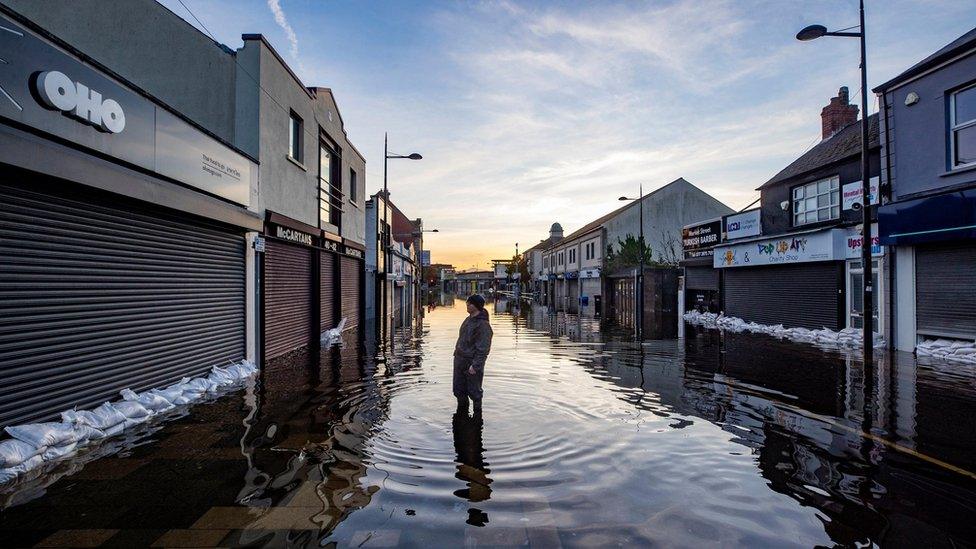
The flooding in Downpatrick has reached record high levels following several days of heavy rain
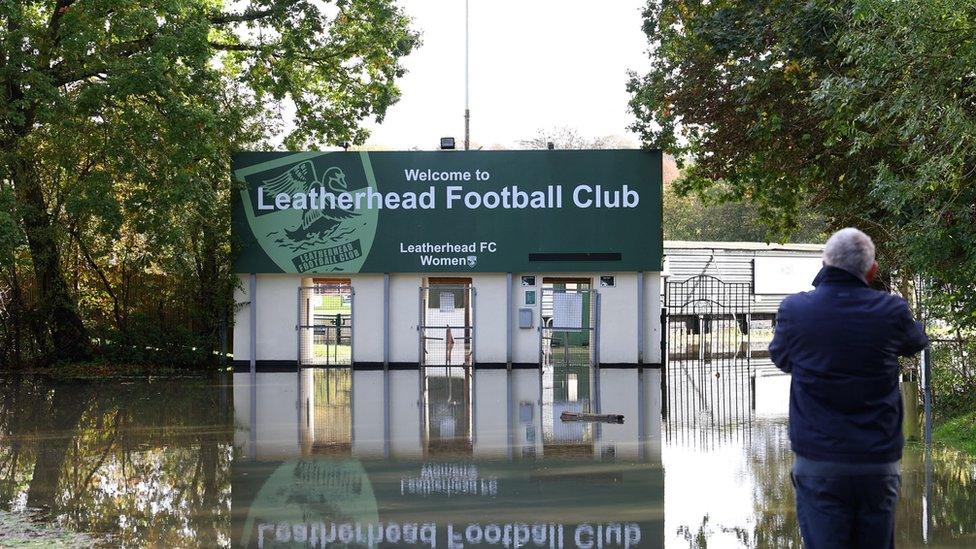
Leatherhead Football Club, in southern England, has been badly flooded
Elsewhere across the British Isles, roofs were blown off homes, some train lines completely ground to a halt and there were long queues around the Port of Dover, which shut earlier amid rough seas.
Roughly 146,000 homes - mostly in the south of England - were left without power, and by 08:00 on Friday around 600 properties still had no electricity.
A spokesperson for the Energy Networks Association (ENA) said: "While difficult conditions remain, with violent winds forecast until the end of the day, teams from across the country are working together to continue to reconnect customers where it is safe to do so."
Some rail services remain disrupted, with LNER - the main train operator on the East Coast Main Line between London King's Cross and Edinburgh Waverley - advising passengers not to travel until Saturday, amid a significant number of expected delays and cancellations.
Several other train operators, notably in Devon and Cornwall, also warned of disruption on Friday while debris from Storm Ciarán was cleared from the tracks, but normal service has resumed elsewhere.
Meanwhile, a section of West Bay cliff in Dorset collapsed onto a beach after it was hit by huge waves.
And in Leatherhead, Surrey, a local football club has been swamped by flood water, putting a home game on Saturday afternoon in major doubt.
Western Europe has also been battered, with at least 13 deaths linked to the storm. France, Spain, the Netherlands, Germany, Portugal, Croatia and Slovenia were all hit, while in Belgium a five-year-old boy was killed by a falling branch in the town of Ghent.
In the Italian region of Tuscany, six people lost their lives as a result of the severe conditions, with several others missing and a number of hospitals flooded.
Watch: Shops and streets flooded as Storm Ciarán strikes Tuscany
Specialists in flooding have suggested the UK needs to be more proactive when making plans to avert the impact of storms.
Prof Hannah Cloke, who specialises in hydrology at the University of Reading, says building resilience to storms requires action when the "going is good, and that can seem expensive and unnecessary to many people when the sun is shining".
Trevor Hoey, a professor of river science at Brunel University and director of the Centre for Flood Risk and Resilience, added that there is risk of being reactive and waiting "until there has been a flood event and then we try to stop that event from occurring again in the same place in the future".
Experts say a warming atmosphere increases the chance of intense rainfall and storms.
However, many factors contribute to extreme weather and it takes time for scientists to calculate how much impact climate change has had on particular events - if any.
The world has already warmed by about 1.1C since the industrial era began and temperatures will keep rising unless governments around the world make steep cuts to emissions.

How are you affected by Storm Ciarán? Share your pictures and experiences by emailing haveyoursay@bbc.co.uk, external.
Please include a contact number if you are willing to speak to a BBC journalist. You can also get in touch in the following ways:
WhatsApp: +44 7756 165803
Tweet: @BBC_HaveYourSay, external
Please read our terms & conditions and privacy policy
If you are reading this page and can't see the form you will need to visit the mobile version of the BBC website to submit your question or comment or you can email us at HaveYourSay@bbc.co.uk, external. Please include your name, age and location with any submission.

Sign up for our morning newsletter and get BBC News in your inbox.

Related topics
- Published2 November 2023
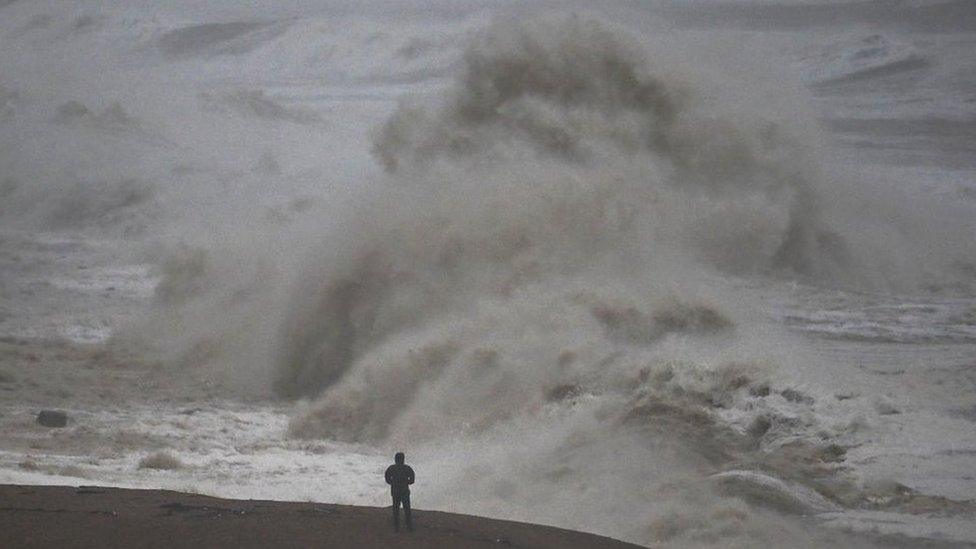
- Published2 November 2023
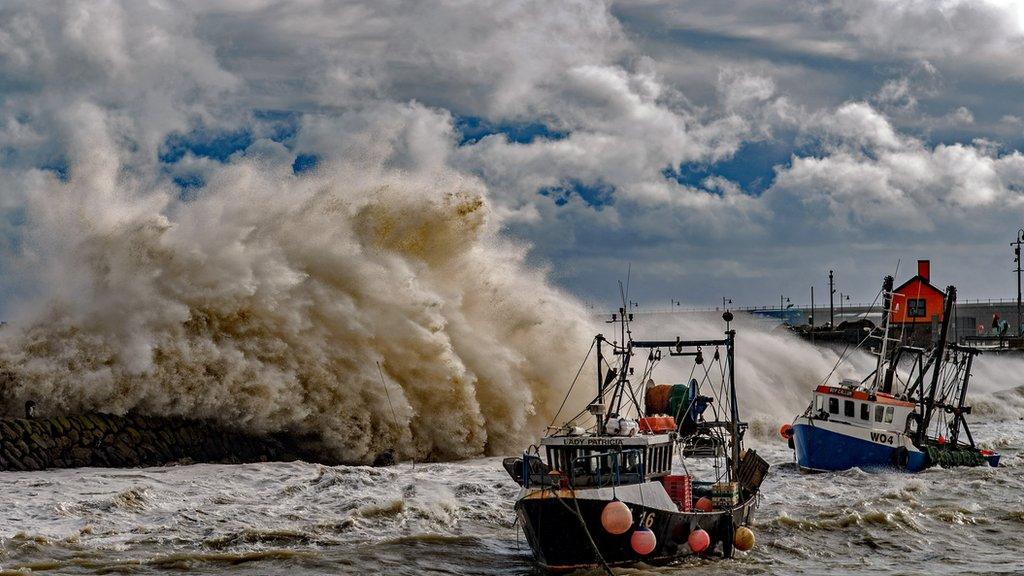
- Published2 November 2023

